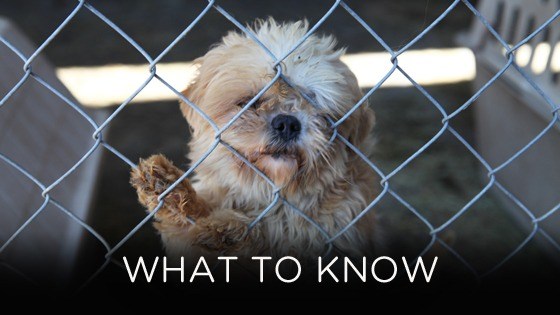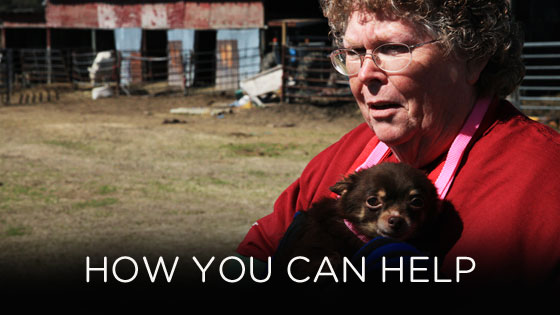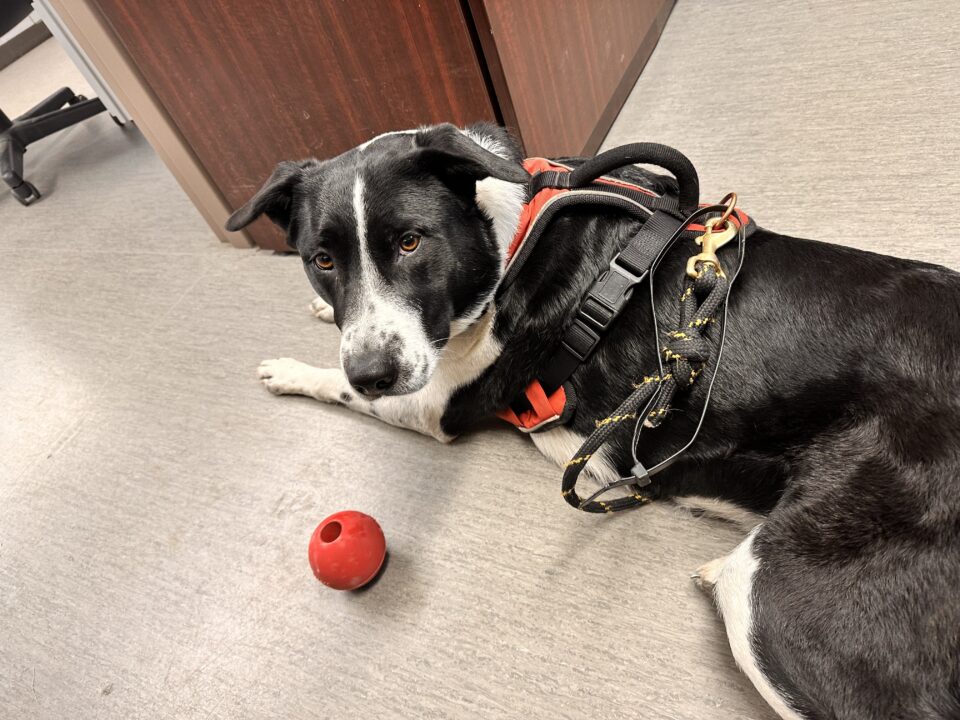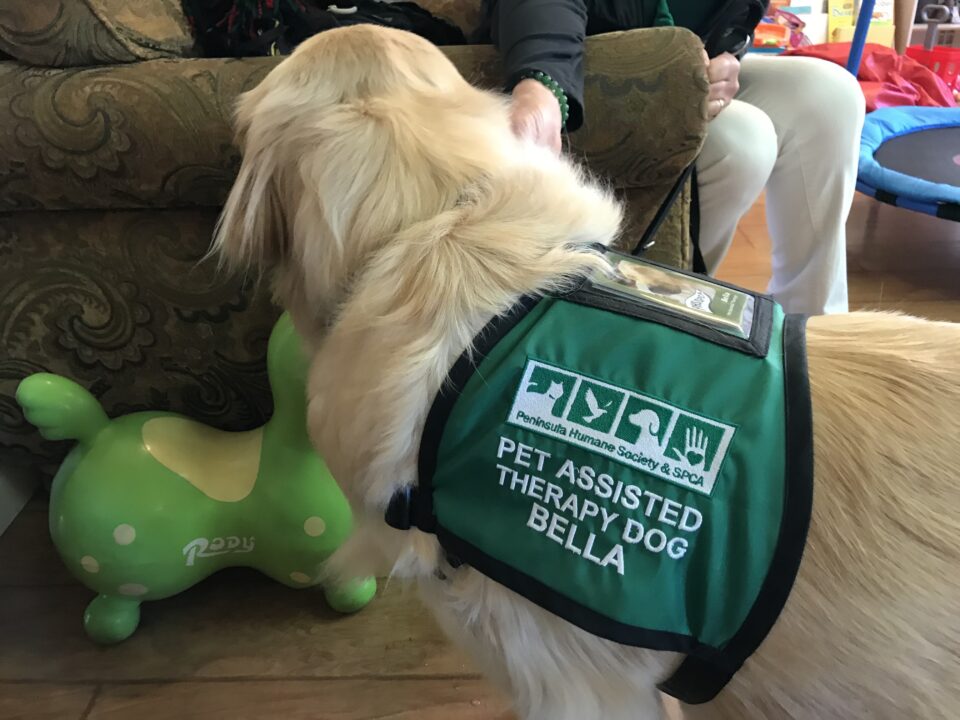Say no to puppy mills: “Opt to Adopt” your next canine companion
September 13th, 2021
Say no to puppy mills: “Opt to Adopt” your next canine companion
Dogs sold in pet stores often come from overcrowded and inhumane “puppy mills”
When you make a choice to adopt a dog from your local shelter or a rescue group, you are not only saving an animal’s life – you are choosing not to support puppy mills.

What are puppy mills?
A puppy mill is a massive breeding operation where hundreds of dogs are kept in overcrowded and often unsanitary conditions without proper veterinary care, food, water, or human interaction. Puppies born in puppy mills are often seriously sick, poorly socialized, and have hereditary and congenital defects from being bred carelessly.
What is life like in a puppy mill?
In a word, grim. Puppy mill dogs do not experience simple pleasures like treats, toys, exercise, or basic grooming. A breeding dog might spend her entire life confined to a filthy wire cage, bred over and over again, year after year, without the chance to feel the sun on her face or know a loving human touch. When she is no longer able to produce a litter, she will be killed or abandoned.
Health issues: Because of the closed quarters, proximity to other dogs, often unsanitary conditions, and lack of health care, puppy mill dogs are at risk of contracting diseases and developing severe physical ailments. Physical conditions and diseases commonly seen in puppy mill dogs include extreme matting, hair loss, open sores, lacerations, eye and ear infections, parasites, mange, heartworm disease, parvovirus, and other serious, congenital and hereditary diseases.
Even if a puppy from a pet store doesn’t look sick, they may develop signs of serious congenital diseases later on. Poor breeding practices are commonplace in puppy mills, and puppies can suffer from hidden killers like respiratory diseases, nervous and neurological disorders, congenital heart diseases, autoimmune disorders, and severe spinal and musculoskeletal diseases. Treatment for these conditions can be costly and heartbreaking.
Behavior: Psychologically, puppy mill dogs may be fearful, timid, and stressed from spending their entire lives confined to a cage without human interaction. For many adult dogs from puppy mills, sensory deprivation has severe effects on their socialization and interactions with people and other dogs. Read more about sensory deprivation and remedial socialization for puppy mill dogs in our Spring 2014 Companion
Who buys dogs from puppy mills?
Unbeknownst to consumers, many of the pets sold in pet stores, through classified ads, and over the Internet come from puppy mills. Sometimes puppy mills sell directly to consumers through Web sites designed to give the impression of a reputable breeder. If you decide to buy a puppy directly from a breeder, don’t do so without seeing where the puppies and their parents are raised and housed. Reputable breeders should be glad to show you how well they run their business and care for their animals.
Dogs bred in puppy mills often become sick weeks or months after being sold, leaving the purchaser with an extreme financial and emotional burden.

Make a better choice for the animals by adopting from a shelter or rescue group…and encouraging others to do the same.
Puppy mills will continue to flourish until consumers stop buying dogs from pet stores, through classified ads, and over the Internet. Don’t buy food, supplies, or other items at stores that sell puppies. When you adopt, you use your wallet to say “NO” to puppy mills and create an opportunity to tell others about your choice.
Read our top five reasons to adopt instead of buy:
Adopting saves money. Adoption fees at shelters and rescue groups are typically much less than the cost to purchase a dog, and they often include vaccinations, spay/neuter surgery, and even microchip identification.
Variety reigns at the shelter. You’ll find dogs of all sizes, breeds, colors, temperaments, and personalities at your local shelter. Want a high-energy ballplayer to be your activity partner? How about a low-key but lovable lug to share couch potato duties with you? Shelter staff and volunteers can counsel you and your family on the best pet to fit your lifestyle.
Adopted animals often have a head start on obedience training. Don’t be surprised to see shelter or rescue animals “sit” on command or walk politely on a leash. Many of them were once family pets who received obedience training and know-how to behave in a home. Also, volunteers often spend time working on basic commands and “manners” to help them make a quicker transition into a new home.
Adopting supports your community. By giving a home to a shelter or rescue animal, you save a life and create space for another needy animal, helping to reduce the number of unwanted and homeless animals in your community.
Raise awareness. Puppy mills will continue to flourish until consumers stop buying dogs from pet stores, through classified ads, and over the Internet. When you adopt, you use your wallet to say “no way” to puppy mills and create an opportunity to tell others about your choice.
- Share our “Opt to Adopt” flier to spread the word about the benefits of adoption.
- Find shelters and rescue groups near you through Petfinder and Pets 911.
- Join our RedRover Responders volunteer team and care for animals like those rescued from puppy mills
- Donate to our Emergency Response Fund so we can provide emergency care for animals rescued from cruelty and neglect
If you have your heart set on a specific breed and can’t find one at a shelter or rescue group, don’t give up! Search the Internet for breed-specific rescue organizations.




